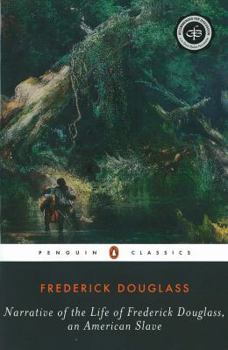Narrative of the Life of Frederick Douglass, an American Slave
(Part of the The Autobiographies (#1) Series and Voices of the African Diaspora Series)
Select Format
Select Condition 
Book Overview
Details the life of the internationally famous abolitionist Frederick Douglass, from his birth into slavery in 1818 to his escape to the North in 1838 - how he endured the daily physical and spiritual brutalities of his owners and drivers, how he learned to read and write, and how he grew into a man who could only live free or die.
Customer Reviews
What a great man.
Frederick Douglass
Good Read. The subject is quite good.
Extraordinary!
Read this classic!
The Reality of a Slave's Existence
Absolutely required reading.
Every American must read this book
Narrative of the Life of Frederick Douglass, an American Slave. Written by Himself Mentions in Our Blog

Five words you never want to hear in a comparative lit class?
"Yeah, going off of that..."
Which, when translated to normal human speak, actually means "This in no way relates to the point you just made, but I really love to hear myself talk." Every English major knows the scenario: The class circles up after reading (or not reading) a beautifully crafted piece of literature, and an intellectually-indulged twenty-something decides to hijack the discussion with the deluded idea that they have the book completely figured out. But the thing about great literature is that no one has managed to totally figure it out – that's why it stands apart as a selection of work that we all keep coming back to. Plus nothing kills an engaging class discussion quite like an unchecked know-it-all. Whether you're the type of student who's read the book before it was assigned, or who only highlights quotes they find on sparknotes, these ten works of literature are worth a second (or third) read. And here's a plus; two of them are comic books.






